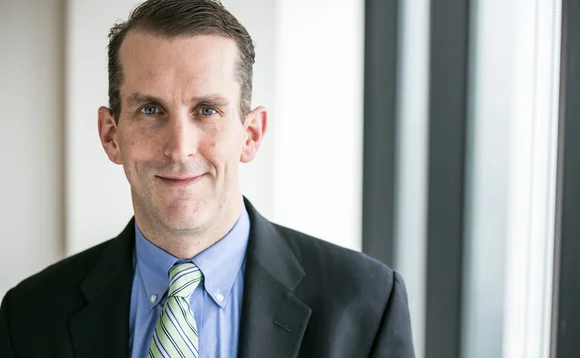Pine River's Rapid Current: CTO David Kelly





“They went out and acquired Rick Nash. They’re supposed to contend, if not win it all,” David Kelly says, staying upbeat after a New York Rangers’ third-period loss back in February. As a dedicated hockey fan, Kelly knows expectations can crush. As a technologist, he also knows they can uplift, if managed right.
Now Pine River Capital’s CTO, Kelly has spent his career managing a precipitous rise. At an ascendant hedge fund, getting an investment strategy spectacularly right begets questions of how to design the next set, and how to grow the shop. Today, those answers typically require formality, and institutional quality, around technology. Sure, Kelly has an eye for identifying a firm poised for a leap—but now in his fourth such role, his presence in the midst of success looks much more like a trend than a coincidence.
Another trend? Two of Pine River’s large—$1 billion plus—funds placed in the world’s five top performing in 2012, and three landed in the top 20. The expectations are simple, but profound. “All of our platforms need to adhere to three basic principles: best in class, scalable, and of course, resilient,” Pine River’s founder, Brian Taylor, tells Waters. “As Pine River grows, that is equally as true for our portfolio management teams as it is our mission-critical control functions such as fund operations, risk management, and compliance.” Front to back, the hedge fund is burnishing its technology team, wasting little time. The firm’s own key acquisition—Kelly—has done it before.
Powerhouse Pair
His suitcase still half unpacked upon arrival in London in 1997, Kelly got his real break into finance with Barclays de Zoete Wedd (BZW), the equity division of Barclays Bank, where he was greeted with an opportunity veiled as a bombshell. Barclays’ freshly installed investment banking leadership—headed up by eventual group CEO Bob Diamond—had promptly sold off parts of BZW to Credit Suisse, promising to forge a new bank in its wake, rebranded Barclays Capital. For several years, first at the head office in Canary Wharf and then as head of Americas technology under Tom Kalaris back in New York, Kelly was in on the ground floor of a massive reset.
“BZW had been a slow moving, plodding organization,” says Neil Blurton, who, as the bank’s co-CIO helped recruit BarCap’s new wave of young technologists, including Kelly. “There was an entirely different style when Diamond came in. We wanted a faster pace, emulating the model Bill Cook used to build Morgan Stanley’s technology functions in the 1980s. David got it right away, and was particularly good at positioning technology problems on a business level. And they liked him because there were no surprises.”
“Total cliché or not, buy-side firms are just much more nimble than investment banks, period, and I’ve seen sell-side CTOs make the jump and struggle, because they don’t understand how to construct a balance—preserving that agility but leveraging institutional-quality solutions in the right places.”
Upon his return stateside, Kelly became involved in BarCap’s burgeoning prime brokerage services, and in particular FIX and execution engine development for a growing group of active managers—namely, hedge funds. Kelly’s interest piqued. He decided in 2002 to take an offer from one such firm, which was just beginning to gain recognition, then managing about $3.5 billion. SAC Capital Advisors, known for its namesake’s long–short equity expertise, needed a trusted hand to build out the platforms required to open up new fundamental and quantitative strategies, rapidly adding headcount, data consumption, and asset classes. SAC’s fortunes since then are well documented. But Kelly points out that, in adding enterprise-grade infrastructure in-house, the firm was operating in relatively new territory for hedge funds of that time.
Only users who have a paid subscription or are part of a corporate subscription are able to print or copy content.
To access these options, along with all other subscription benefits, please contact info@waterstechnology.com or view our subscription options here: https://subscriptions.waterstechnology.com/subscribe
You are currently unable to print this content. Please contact info@waterstechnology.com to find out more.
You are currently unable to copy this content. Please contact info@waterstechnology.com to find out more.
Copyright Infopro Digital Limited. All rights reserved.
As outlined in our terms and conditions, https://www.infopro-digital.com/terms-and-conditions/subscriptions/ (point 2.4), printing is limited to a single copy.
If you would like to purchase additional rights please email info@waterstechnology.com
Copyright Infopro Digital Limited. All rights reserved.
You may share this content using our article tools. As outlined in our terms and conditions, https://www.infopro-digital.com/terms-and-conditions/subscriptions/ (clause 2.4), an Authorised User may only make one copy of the materials for their own personal use. You must also comply with the restrictions in clause 2.5.
If you would like to purchase additional rights please email info@waterstechnology.com
More on Emerging Technologies
MarketAxess and DirectBooks partner, MSCI debuts AI connectors, and more
The Waters Cooler: Canton’s consortium advances cross-border collateral mobility, TRG Screen launches a market data ROI calculator, and Trading Technologies provides direct connectivity to India in this week’s news roundup.
24X files for exemption from SIP rule to take part in overnight trading
The exchange, which began operating in mid-October last year, plans to offer the overnight session in the second half of 2026.
HSBC gives 31,000 engineers an AI coding assistant
CEO Georges Elhedery said the bank is re-engineering its end-to-end processes and enhancing customer experiences with new AI tools.
Bloomberg Terminal’s agentic play shows rapid change in trading tech
Waters Wrap: The data giant’s conversational AI interface might seem novel, but others say having one is becoming a bare minimum in the world of trading technology.
AllianceBernstein enlists SimCorp, BMLL and Features Analytics team up, and more
The Waters Cooler: Mondrian chooses FundGuard to tool up, prediction markets entice options traders, and Synechron and Cognition announce an AI engineering agreement in this week’s news roundup.
CompatibL’s unique AI strategy pays dividends
CompatibL’s unique approach to AI and how its research around cognitive bias and behavioral psychology have improved the reliability of its AI-based applications.
Market participants voice concerns as landmark EU AI Act deadline approaches
Come August, the EU’s AI Act will start to sink its teeth into Europe. Despite the short window, financial firms are still wondering how best to comply.
Ram AI’s quest to build an agentic multi-strat
The Swiss fund already runs an artificial intelligence model factory and a team of agentic credit analysts.







